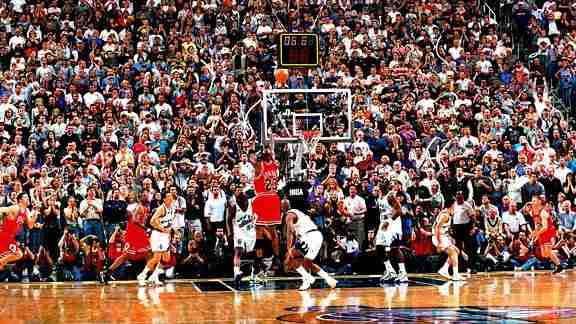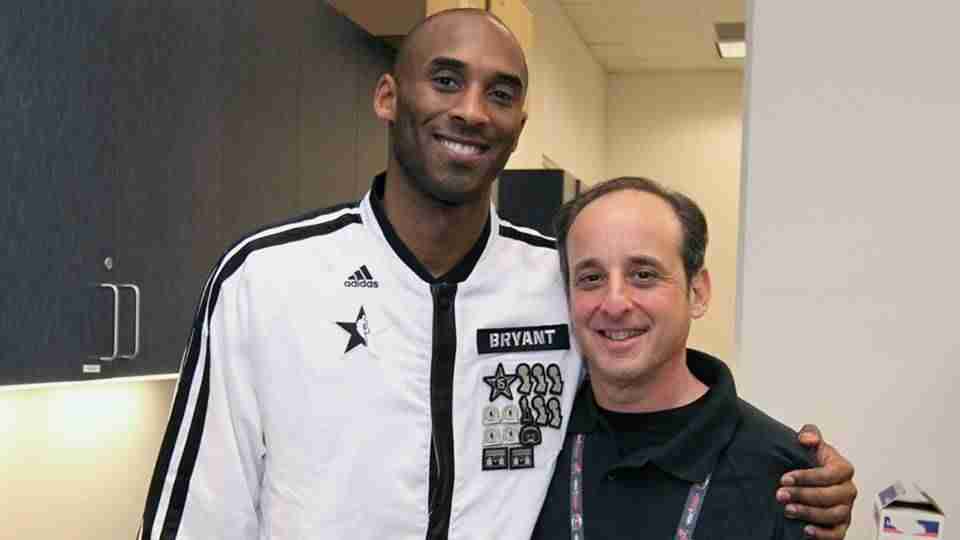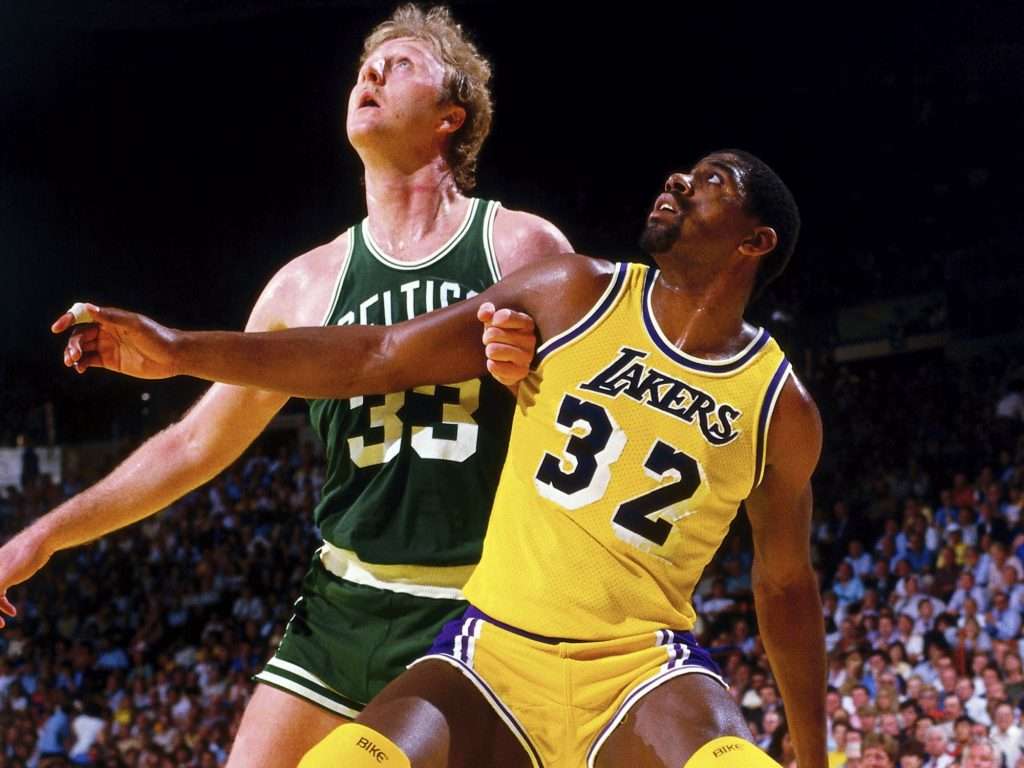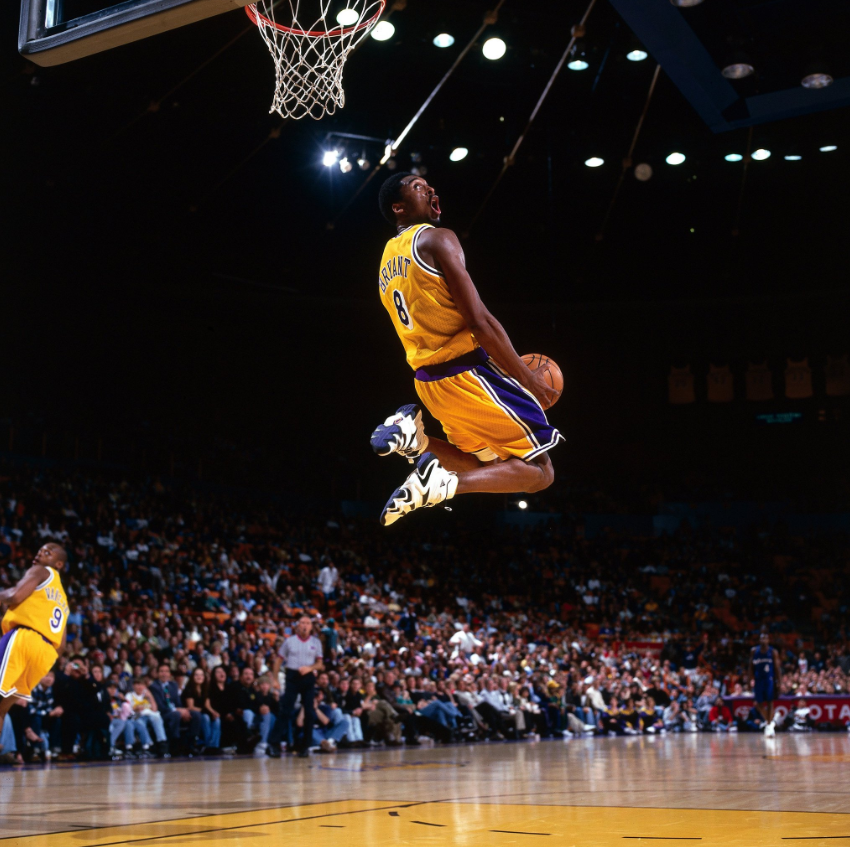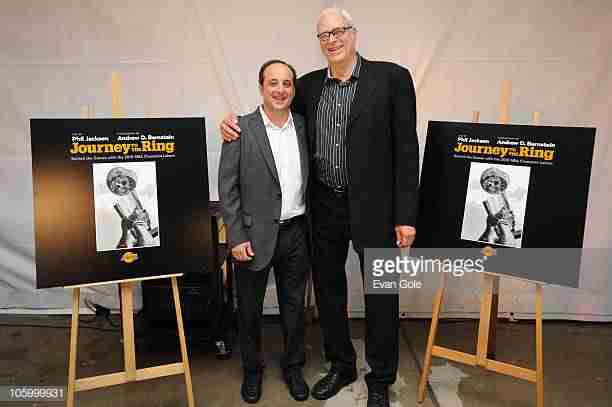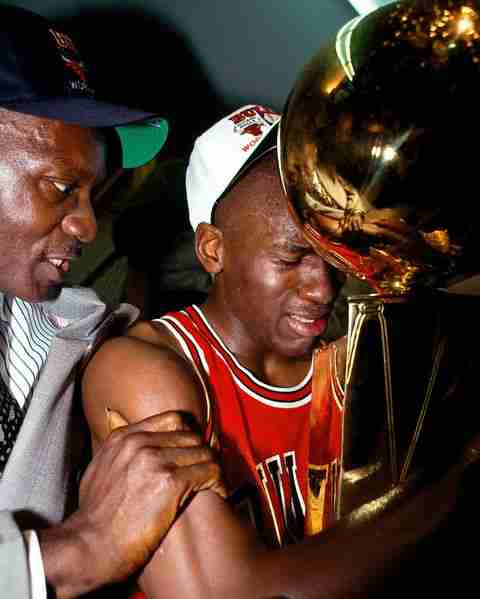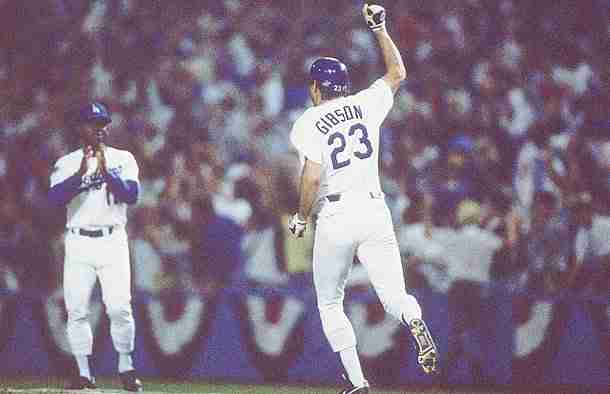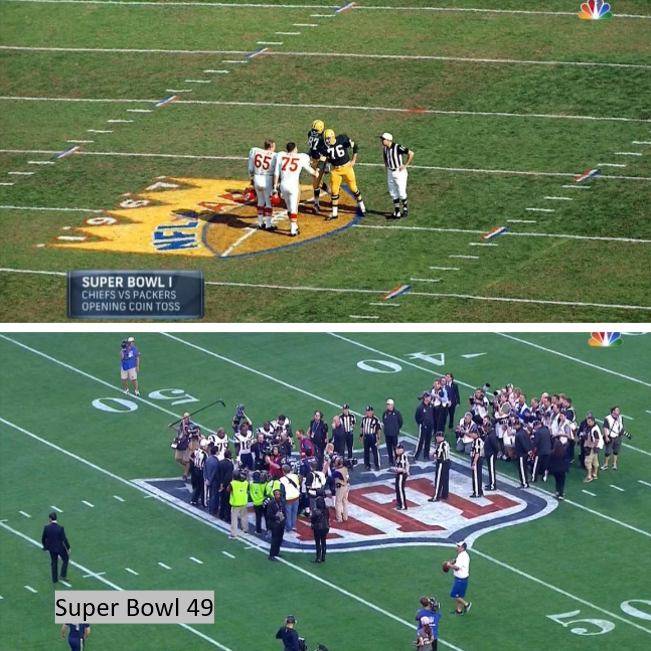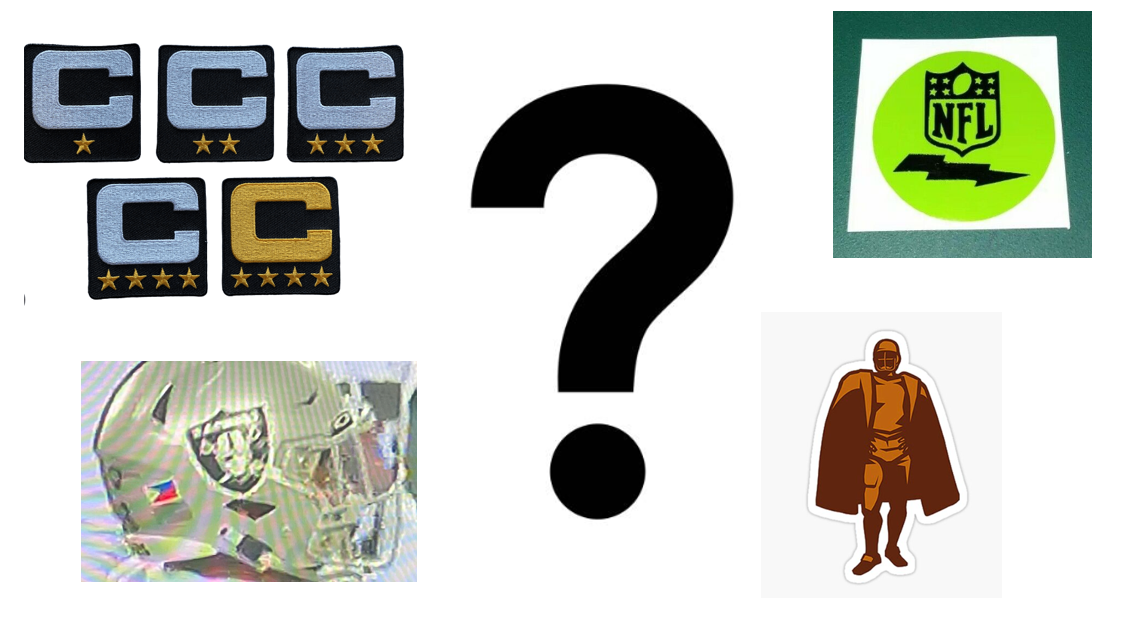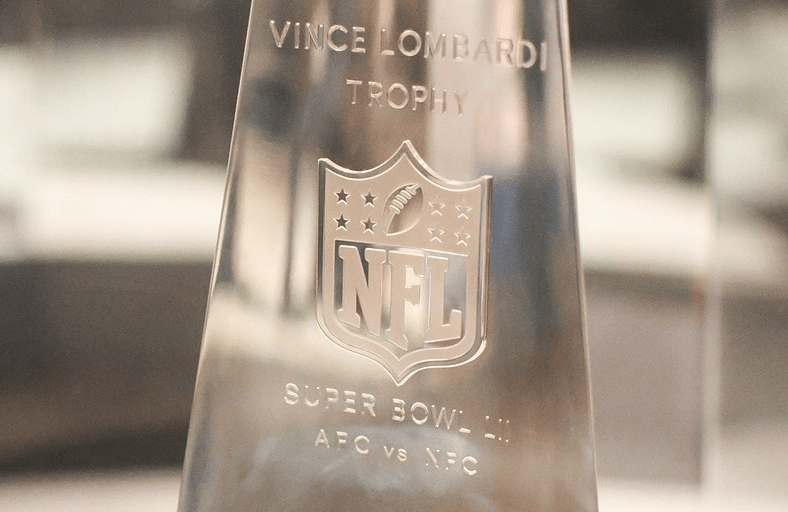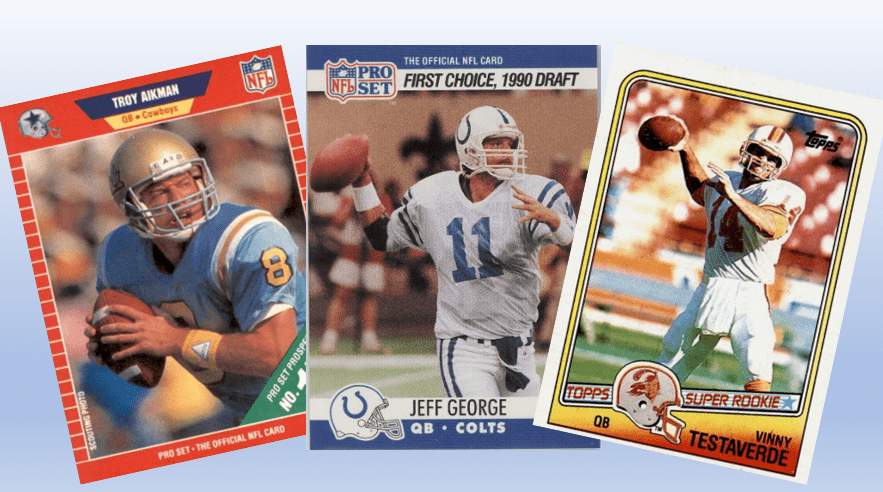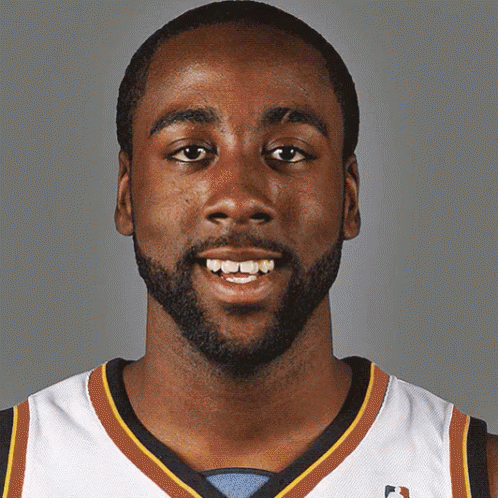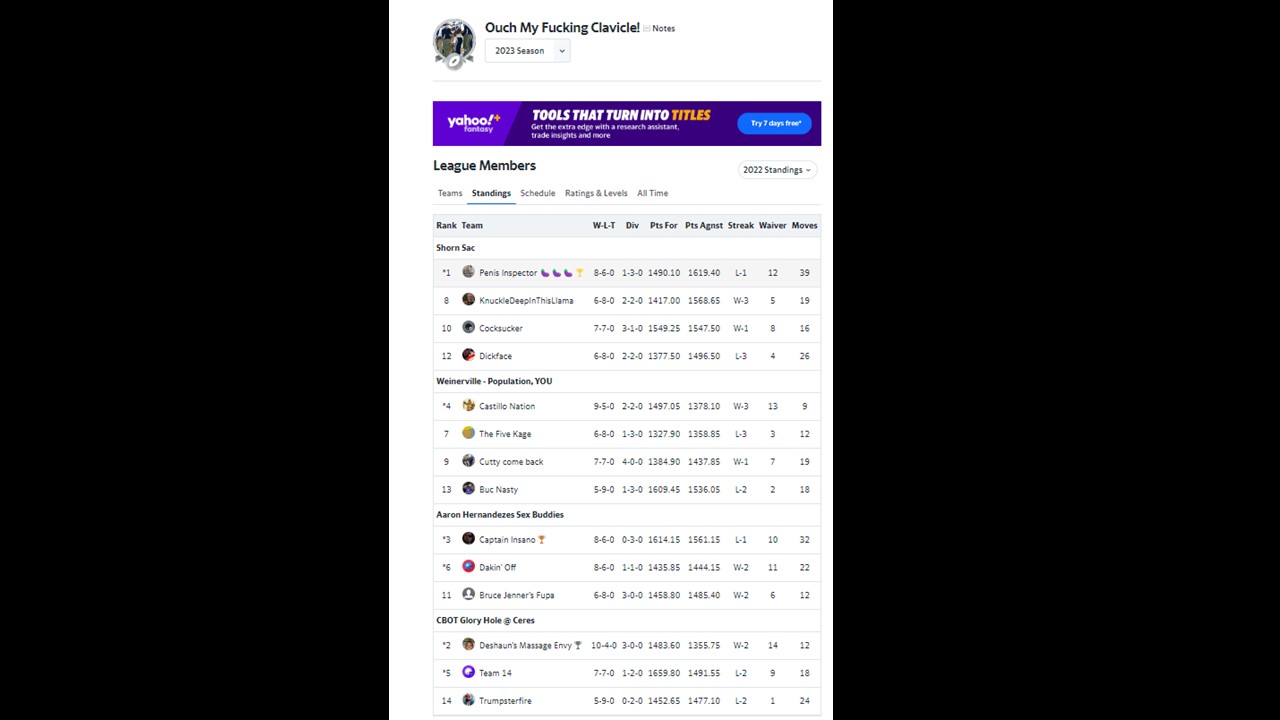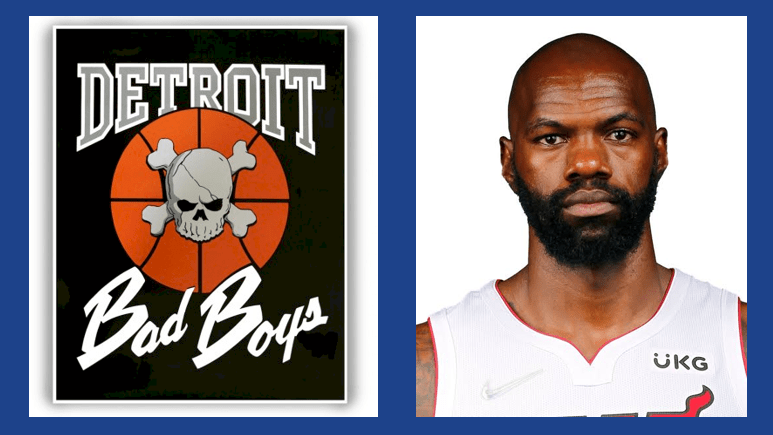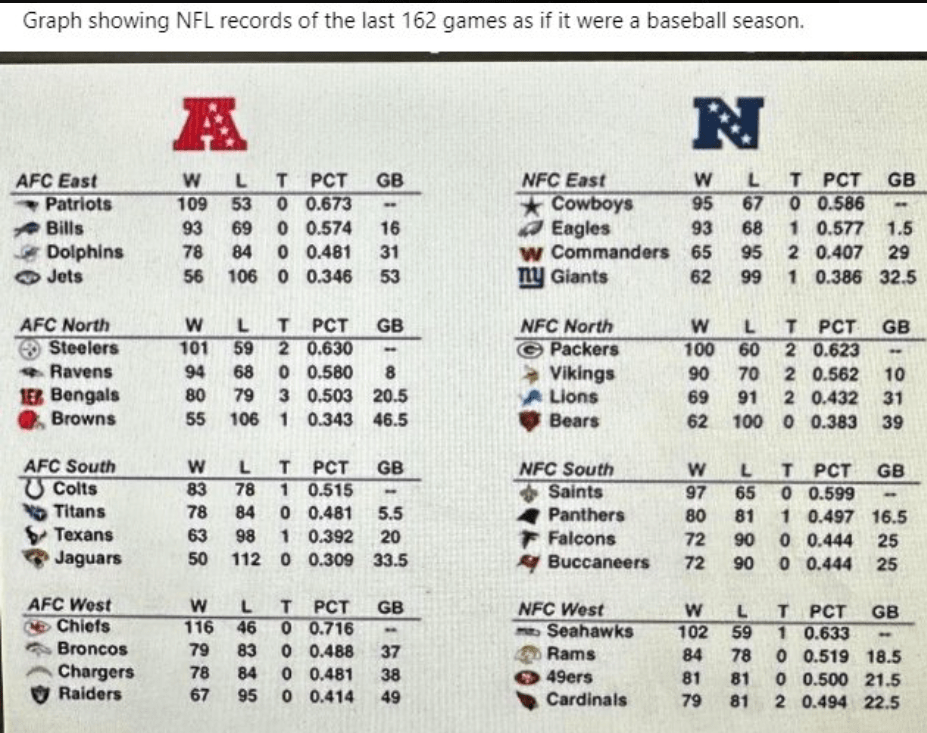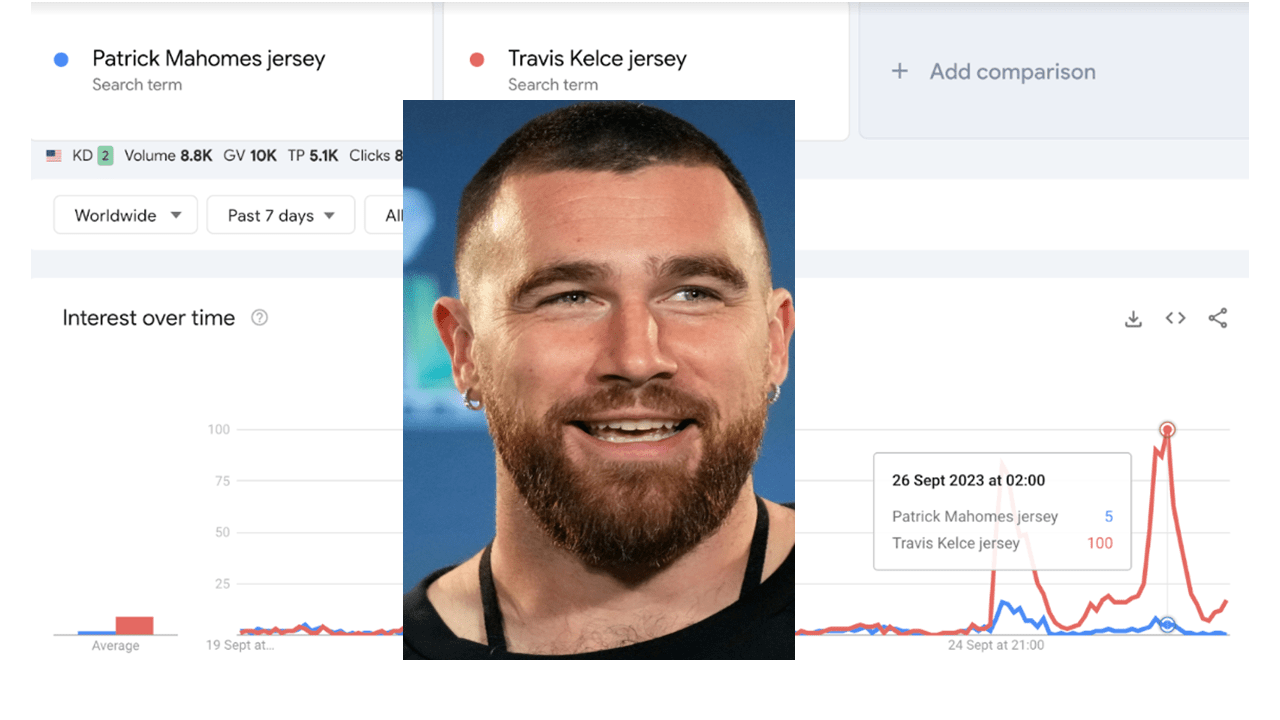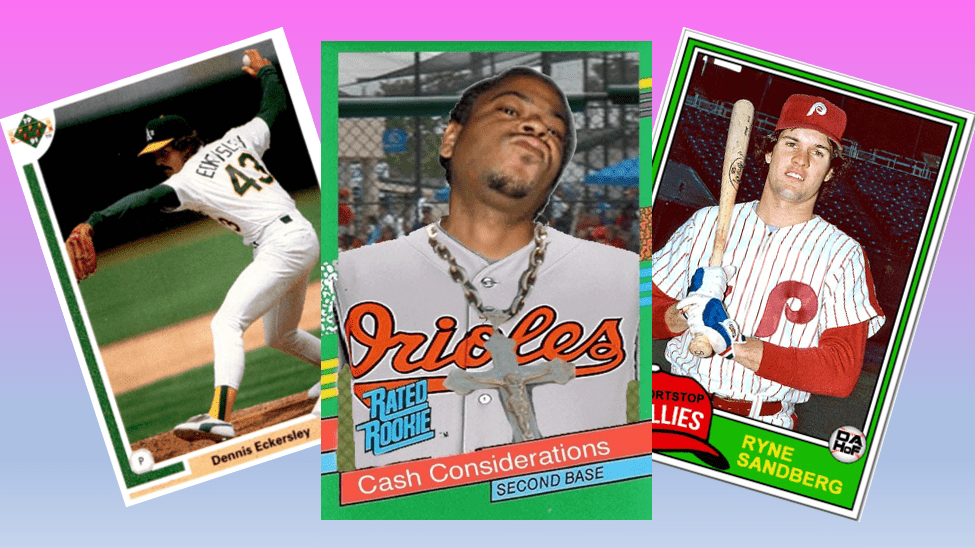You may not know the name Andrew Bernstein but if you are a basketball fan you have seen and enjoyed his work. Ever seen this one?
He was recently inducted into the Basketball Hall of Fame as a photographer.
If a picture is worth a thousand words, this article has about seven pictures worth. The below conversation took place two years ago just after the retirement of Kobe Bryant, his subject and close friend. Andrew Bernstein espoused so much knowledge about business and success, so many great stories, we covered EVERYTHING.
How he became team photographer for the Lakers and Kings. How he wrote a book with Phil Jackson. How he became the Dodgers team photographer and captured Kirk Gibson‘s World Series winning HR. How he created NBA Photos and sold it to NBA Entertainment. His time as LA Kings photographer, Bruce McNall, Wayne Gretzky, Mike Trout, Magic Johnson…I could go on and on.
A good interviewer knows when to shut up. And as you’ll see below, I kept my mouth shut and listened intently.
“I learned through that relationship that these icons of sports are people who have lives and families and problems and everything that we all have.” – Andrew Bernstein
Andrew Bernstein: Hey Paul.
PE: Hey Mr. Bernstein, how are you?
AB: Good. Please- please call me Andy. Okay, I’d appreciate it.
PE: I absolutely will Andy. I’m sorry it’s just- I think you just deserve an immense amount of respect with- with what you’ve done in your career. And-
AB: Thank you my friend. I wish my kids felt the same way. But that’s what I get.
PE: Well, they never will cause you’re just dad, you know.
AB: Yeah, right. Yeah. Or an ATM machine, one or the other.
PE: Right.
AB: Hey, sorry we’re a little late too. I was on another call, I couldn’t get off, so I appreciate your patience there.
PE: I appreciate that.
AB: So thank you.
PE: Not a problem. Yeah, so just really getting into your career, I don’t think people realize all the work and the sustained effort that goes into maintaining and creating a career like the one you’ve had. It doesn’t just fall out of the sky. And once people see it happening in front of them, it’s sort of like, well of course, that’s what Andy’s always done, what else would he do.
And I think it’s easy to lose site of the continued effort and work. Can you talk about, just in the broad spectrum, the- that aspect of your career? And just growing up in Brooklyn and getting your start.
AB: Well, it’s actually really great to- question, I guess Paul because it- it didn’t just fall out of the sky. I- I’ve been actually doing a lot of retrospection lately- lately with Kobe’s retirement coming up.
And that big 20 year chunk of my life, working with him and photographing him, and documenting every move he’s made has really kind of hit me between the eyes and made me look at my career actually and you’re not the first one to ask me about it but I like the way you phrased it.
I was- I was very focused as a- well I guess, 18-19 year old when I was going to the University of Massachusetts and I realized I wasn’t getting any training to become a photographer. I knew that photography was where I wanted to go.
I knew that since high school. I went to UMass thinking that I could probably learn in a classroom setting some photography stuff and- and photojournalism and journalism itself.
It really didn’t have the right program for me. Probably I didn’t read the catalog correctly or something, but- but I- I got very lucky when I went there because they had a very prestigious college daily newspaper.
It came out five days a week, called Daily Collegian, it was an award winning newspaper in clear- Western Massachusetts, kind of the rural area. And our paper- our college paper was really the towns’ newspaper. The Boston Globe didn’t come until the afternoon. There was no real, you know, bon a fide town paper except ours, so.
So I got- got into that very early, or probably in the second week of school as a Freshman I started volunteering there and they sent me to this assignment and that assignment, things I’d never done before. Just doing assignments, learning how- how to shoot and- and come back and develop the film and make prints and, make deadlines and all that stuff.
And at some point in that first term I actually became the Assistant Photo Editor. I don’t know, maybe no one else wanted the job, but- but I was like sort of living there in the photo lab and in the newsroom. So there’s kind of like a mini newsroom, like any regular, back in the 70’s kind of newsroom on a smaller scale but, um- assignment editors and they had different editors for the different parts of the paper and-
I was working for all the different, aspects; Entertainment, and Lifestyle, and News and Sports, and all that stuff. And anyway, I- I just realized once I got to my- into my Sophomore year that I needed to actually rash it up my technical training cause I wasn’t learning enough of the Science of Photography and- and all the creative stuff you would learn in the classroom setting and the discipline and all that.
So I went to Art Center, I applied to Art Center College of Design, which is kind of the Johns Hopkins of Arts Schools, it’s like heavy duty, super commercial, top of the line, Art College. And made the leap, they took me and I left there and started Art Center, and while I was at Art Center I knew that sports photography was what I wanted to do. Unfortunately Art Center did not encourage that in any way, shape, or form. They were very much into advertising and commercial, which being from Brooklyn, only fueled my energy to prove them all wrong.
“And honestly, and to make a career out of something that they- I was told over and over and over again that I would never make a living doing sports photography.” – Andrew Bernstein
PE: Why?
AB: Well because it wasn’t- well it- here’s the deal. No one came out of Art Center as a sports photographer- a news photographer. You came out of Art Center as a- you opened a studio, you were doing product photography, doing cars, you were doing- photojournalism was not even on the radar screen.
We had a couple of photojournalism classes and documentary classes, and I gravitated very, very quickly to those teachers who- two of those teachers 40 years later are still very, very good friends of mine and have been mentors of mine throughout my entire career cause those are the two guys that pushed me and encouraged me and said “yeah, you can do it. No matter what they tell you, you can do it.”
And look at John Zimmerman, look at Neil Leifer or look at Walter Iooss. These are guys who actually made something of sports photography, so you can do it. And so I was very lucky to start working as an assistant for some Sports Illustrated photographers locally in LA.
And that’s where my real education, honestly, began because I learned day to day, tedious lessons of being a working sports photographer. I went to every venue imaginable and major football stadiums to podunk little college gyms to high school things.
Any imaginable situation I was put into just because I was an assistant and I learned everything that I needed to know, including being introduced to people at The Forum, at the time. You know the Kings and Lakers played at The Forum.
PE: Uh huh.
AB: And I was taught very, very specialized techniques of indoor strobe sports photography where we put these gigantic flash units up in the catwalk and Sports Illustrated is really the only entity that was doing that. It was a very tedious, expensive way to approach doing sports photography, but they-
PE: Is that why they are leaps and bounds-
AB: -basically-
PE: -ahead of everyone-
AB: Way- yes-
PE: -at that time?
AB: Yes, by far.
PE: Because it really has a feel.
AB: Yep.
PE: Sorry to interrupt, but I feel impassioned by that because the photography of that era had a particular feel, particularly The Forum.
AB: Yeah-
PE: That has to be what it is.
AB: Absolutely. Yeah, and there were only a handful of us, and I say that really honestly, there might have been five or six of us in the country who knew actually how to do that, how to put these units in- how to put them in, how to install them, how to make them work.
And this is a very tedious thing. I- my day would start at 10 in the morning at The Forum. We’d have to pump or rope up all this equipment up into the cat- or it’s basically like a concert loading in. And spend the whole day there setting it up. The photographer comes in about 2 or 3 o’clock. Get him all set up. The guy shoots the game. You’re helping him with his film and loading cameras, and remotes and things, and monitoring the strobe system. Then he leaves and then it’s like a 2-3 hour- -out situation. Pack everything up and you go to the next city.
PE: So he’s Bruce Springsteen and you’re Max Weinberg.
AB: Exactly. Yeah, well, yeah. Although Max doesn’t pack up his drum kit either, but exactly, you’re Max’s drum tech. Yeah, Max walks out too, he just walks out a little later than Bruce.
PE: Exactly, much more after.
AB: It’s funny you bring up Bruce because you must have read my bio somewhere about my Bruce obsession.
PE: I saw a picture somewhere when I- on Google, I didn’t read anything. Is there a Bruce obsession I need to know about?
AB: Oh yeah, dude, it’s crazy and I’m a Bruce fanatic since 1977. Just saw my 67th show-
PE: Wow.
AB: -here in LA. And actually shot it. It was the last concert- last event actually ever at the LA Sports Arena before they demolished it with Bruce’s show on the 19th of March.
PE: Wow.
AB: And I got to shoot it. It was really amazing. After doing some photos with him with some of my long time friends who run the Sports Arena on stage, which was really cool. And I actually shot he’s doing The River Tour-
PE: Yeah.
AB: I don’t know if you’re familiar with Bruce but he came out with The River album in 1980, he did a whole tour for two years for The River. I shot the original River Tour back in 80 and 81.
PE: Wow.
AB: He actually came through twice, once in 1980, once in 1981. And now, I shot the revised River Tour. So that- I wrote a whole story about it for Backstreets Magazine, for their website. So I could- you can even actually look it up, but you just Google Backstreets Bernstein. It will come up.
PE: I absolutely will.
PE: Your story is a really cool story because one of the other things I wanted to ask you about is your versatility. So you start as a photographer and then you find yourself writing a book with Phil Jackson.
AB: Right.
PE: Then you find-
AB: Yeah.
PE: -yourself co-hosting Through the Lens, which is like the best format for a Sports Talk Show I think I’ve ever seen.
AB: Thank you.
PE: And I sincerely mean that. The delivery that you have with who you’re interviewing is so low key and inviting I wanted to ask you about that specifically. Why don’t more people do that? Why don’t- do people feel like when they are in front of the camera, they have to be the sports commentator guy and they sort of lose touch of that relaxed conversational tone?
AB: Well, it’s really interesting you bring that up because this just goes back to your first question, which I thought I was really long winded on. I didn’t actually answer your question-
PE: Well it was a long winded question too.
AB: – about stuff falling- my career falling out of the sky. That didn’t happen. I actually had to create this career. And I had to maintain it over 35 years.
And I’ve- I have clients that have- I have clients that have been clients of mine for 35 years. The LA Kings, the Lakers, I’ve been Director of Photography for AEG, it’s- for Staples Center and Microsoft Theater since we opened in 99.
These things don’t just happen. You have to be a good businessman.
And I was- one of my favorite things I like to say, and I’ll say it to you, is that I’m a professional photographer. That’s what I do, that’s what- it’s on my resume, on my passport. That’s what I do. But I don’t spend even 10% of my time as a business person doing photography – like having my eye in the camera.
“I probably spend 5% of my time actually taking a picture, so the other 95% of the time has to be business. It has to be maintaining clients, building- building the brand because we’re actually trying to become more of a brand now. Which is, the hot thing now.” – Andrew Bernstein
PE: Yep.
AB: Trying to get new business, trying to learn the new technology, trying to incorporate new technology into what we do already, which is very challenging, with clients that are very, basically set in their ways.
And for me who doesn’t really get all this new technology, to be honest with you, so I have to have people around me who have been very helpful in teaching me and pushing me and- so, I just- that leads me to your next question about the show.
I’ve always kicked around the idea of doing a show where I sit with a sports person, doesn’t have to be an athlete, but somebody in the sports business and talk about their career through my photos, right? So I’ve been watching the show Sports Reporters forever-
PE: Absolutely.
AB: -on ESPN-
PE: Yep, it was on-
AB: -which is a nice show.
PE: -Sunday morning, yeah, Mike Lupica and Bob Ryan and all those guys forever.
AB: Super knowledgeable guys, talk about the news of the week or rivalries or history or whatever, but the thing that’s lacking in that show are- is- is visuals-right?
PE: -It’s so dry.
AB: Yeah, right.
PE: And it always has been. It’s like a sports McLaughlin Group.
AB: And those guys are kind of pompous.
PE: Yeah, right.
AB: Yeah exactly.
PE: You know what I mean.
AB: And they’ve been- I know all those guys. Bob Ryan I’ve known him for almost four years, but it’s kind of like about them, you know what I’m saying?
PE: Yeah. You- you miss out on the content because it’s about them.
AB: Right. So when the Lakers signed the deal with Time Warner, and I saw that there was going to be a 24 hour/7 day a week/365 days a year Laker Channel, the first thing that comes to my mind is, okay, they’re going to need content because they can’t replay the ’85 Finals fourteen times a day.
And what do they do when it’s off season, you know, especially after a couple of seasons we’ve had that years where there’s no playoffs and all that-
PE: Right, you just don’t acknowledge the last three years or so.
AB: Yeah. And so I approached the Lakers and they gave me the blessing to go talk to Time Warner and I created this show, called “Through The Lens” which they produce. But it’s- the shows not about me. And the show’s about the person I’m talking to, their career, and how my photos sort of help explain their career and how through my photos, sometimes, people have understood their careers better.
When I had James Worthy on and I’ve known James since his rookie year. We’re good friends, spend a lot of time together. He literally knew every picture that I showed him. He said “I remember that, Game 6 – Boston third quarter.” I’m like, “Really?” He goes, “Yeah man.” He said, “I live through your photos. Your pictures are the living history of my career.” So that means a lot to me.
PE: Well, yeah that’s the highest honor I would think.
AB: Oh yeah, and then when it comes to Phil Jackson. I approached Phil about doing this book back in 2009-10 season. He and I have amazing career- history together. I’m the only photographer he let into all 11 of his championship locker rooms and-
PE: Wow.
AB: -and we just have a great off the court relationship. It’s very mutually respectful, just nice relationship. And it’s built up a lot of trust over the years. And he gave me the green light basically to imbed myself with the team for that season. And the only caveat to that was that he needed to agree to write the book. So what’s really unique about this book- I don’t know, do you have the book, have you seen it?
PE: I’ve seen the book of- I have never read the whole thing but I read the earlier Phil Jackson books and I got sucked into the photography of your book predominately.
AB: Cool.
AB: No, I’d definitely- yeah, we’ll definitely send one to you because-
PE: Awesome.
AB: -this to me is one of the first, it’s only collaborations between an artist or photographer and a subject be it a rock band, singer, politician, athlete, whatever.
Now usually you see documentaries even on film or photo books which are beautiful, and they’re great, but it’s like Squarsazi’s view of the Rolling Stones.
PE: Right. Right.
AB: Or whatever. But you don’t have the Rolling Stones collaborating with Squarsazi on that vision and when I went into this with Phil that was an agreement that we had, that he and I would truly collaborate. That the structure of the book, what he’s going to talk about is going to complement what I’m going to photograph and what I’m going to photograph he needs to talk about.
So we had numerous meetings and numerous discussions and late night emails and even when the book was finished he still had things he needed to tweak. And it was to me a beautiful experience because it was a true collaboration. It wasn’t my vision of that season, it was our vision. That meant a lot to me and I know to him too.
PE: Wow. Man, Andy there are so many things I want to ask you about.
AB: Sure.
PE: There’s just so much cool stuff.
AB: We got some time.
PE: There’s just so much cool stuff you’ve done. Okay, cool because I got time. I don’t want to take up your whole day, but-
AB: No, I have to be at my kid’s Second Grade class at 10 o’clock but we got plenty of time.
PE: Cool. I appreciate it. I have a daughter who is in second grade and our first soccer game is tomorrow. I’m coaching her team for the first time and-
AB: There you go.
PE: -and I don’t know-
AB: Get ready man.
PE: -who’s more excited me or her.
AB: That’s great. Well if you do the math and figure out how old I am and that I have a second grader, it’s rather frightening.
PE: We’ll just avoid the topic of age right? Cause pictures are timeless, so we’ll just really focus on that aspect of it.
AB: No, no she’s been keeping us young, so it’s great.
PE: Sure. I really want to ask about the comment you made earlier about how 5% of your day ends up being photography because-
AB: Right.
PE: -you really end up being a businessman whether that was your initial goal or not because you’re in pursuit of this passion and your passion isn’t limited to one prong of this greater thing it’s like this all encompassing thing. So your love of photography gets you into collaboration and in situations that you never could have predicted for yourself probably. But that’s all-
AB: That’s true.
PE: -fueled by all the work on the back end, email, pitching new clients, learning, staying on top of the industry that you’re in. What advice would you give about managing all that? Because what you said describes what my average day is like as a writer and a guy who owns a digital marketing business with another guy and having a child and all those things on top of all that. What is the best advice you could give about- you know, what’s the first thing that comes to mind when I say that?
AB: Well, the first thing that comes to mind is how things have changed. Back before computers, and I’m talking like my dad here, but before email and-
PE: Which is who we all turn into.
AB: -yeah, before cell phones, there was actually- there was actually the semblance of the possibility of having a personal life. Now we’re all connected 24 hours a day. I’m probably not the first person that’ll tell you the first thing I do in the morning is turn on my phone and check emails and texts. Everybody does that. My wife is a lawyer. She’s doing it in the middle of the night.
In the old days it wasn’t quite like that, it didn’t mean that I wasn’t obsessed and concerned about paying the rent and getting the next job and building my business and all that, which I was, but it wasn’t the connectivity factor wasn’t part of the equation.
You could actually have some down time. Now I have to actually force myself, literally I have to leave the phone in the car if I go to the gym or if I take- I’m serious man.
PE: I know. I know.
AB: -or if I take the kid to the park, if I take a bike ride with the kid after school or on the weekend go to the beach because I- you act- this is the nature of life now. So the answer to your question, the long response is that you have to have some semblance of balance in your life and realize that especially with kids.
And you have a young one, and I have three older ones that are in college and past college, that it goes by in the blink of an eye. It doesn’t feel like that now when you are in it and you’re dealing with the day to day and making the lunches and homework and school and girl scouts and soccer and all that stuff but trust me, it goes by like, literally like a meteor and I look at my older kids now and I just can’t believe that all that time went by and it’s just its fleeting.
So at the end of the day there’s that famous saying that “Nobody says when they are on their death bed, I wish I spent more time in the office.”
PE: Right.
AB: Now I’m not one to- I wish I could practice what I preach. I mean honestly I run my own business. I’m literally obsessed with it 24/7.
Even to this day I worry about the next job that’s going to come in. I worry about making payroll. I worry about keeping my guys busy. I worry about the challenges that are in front of me.
But even back when I started and as I getting my- building my business and my career, even though those things were challenges I took them as good challenges, as like exciting- excitement to keep the day interesting. And I don’t go in the- into an office and sit there 9 to 5, which I’m not putting anybody down for doing that, but that was never my thing.
So every day is different and I enjoy the interactions that I have. I still enjoy going to every single game I go to. I even in some weird, convoluted way I enjoy the travel part of what I do, which I’ve been doing for so long. Physically it’s become much more difficult but as long as I can show up to games and sit down or do what I have to do, I’m going to keep doing it.
PE: So was there a moment, particularly when you got involved with the Lakers and the Kings and then being in charge with the high level where you’re at, I mean the Director of Photography. Was it like a gradual accumulation of roles that lead to that sort of being the culmination- that position I mean, being the culmination of all that or were they like voila, here you’re the Director of Photography at the Staples Center?
AB: No, to be honest with you, there has only been one time in my whole career that something was presented to me by surprise. Everything else was- was well thought out, planned.
The Director of Photography job, for example, for AEG, that was something I planned once I heard the Staples Center was being built back in 97 I think they announced it, 96. I started planning, I approached the people that I knew were going to be moving over to Staples to run it and I got the wheels moving to create a photography department and a position of Director of Photography.
NBA Photos is the same thing. When Terry Lions, my dear friend Terry and I created NBA Photos-
PE: Yeah, that’s right.
AB: -it wasn’t something the NBA- the NBA didn’t create it, we created it.
PE: Right. And then did you pitch it to them? Is that how it worked?
Yes. Yeah, we pitched it to them because before that Terry who was one of the Senior PR Directors of the NBA, he would call me and say, “Hey Andy what do you got on Larry Bird, what do you got on this guy, what do you got on that guy?” and I would send him the pictures or I would send them to the few licensees that needed them or magazines.
But as the business grew, the NBA’s business grew and the number of licensee’s and magazines that required photos, it became unmanageable for me to do that out of a four draw filing cabinet in Los Angeles.
So Terry and I approached, actually, Gary Bettman, who was the Deputy Commissioner at the time, about this idea and Gary loved it. And they started- we started NBA Photos.
I shipped- literally shipped the filing cabinet to them which lived in NBA League office, probably should be in the Smithsonian at this point. That’s how NBA Photos started. So that was a conscious effort. You know I became the- I was the first official NBA photographer.
PE: Really?
AB: That happened in 1986. Yeah, it was- that was a position that I approached them about. I said “Look I’m doing all these games, all these assignments, why don’t we create an actual position.”
It was a non-salaried, non staff position but had some economic security to it and also gave me a little bit of cash in terms of a title which helped when I went into Arena’s or into shots. It gave me a little extra boost from being with the league instead of just some schmo off the street. So I created that.
The only time honestly, that a job fell in my lap was when I became the Dodger’s Team Photographer in 1984, which was the craziest story ever. The PR guy, Steve Grenier, who I only knew because he was the guy I had to write to- physically write letters to, not email, to ask for credentials to come shoot a Dodgers game.
And he was very gracious and in those days the PR people of the different leagues were very willing to help young photographers and there was no licensing restrictions or anything like we have now.
PE: Wow.
AB: And he was great. Steve was great. He would give me credentials to shot, really any time I wanted to, usually they would be games where I could build up a nice body of stock photography. And I would sell that on my own and all that was legal and encouraged back in those days.
And I remember it was late February 1984 and he calls me on the phone about 9:30-10:00 at night, and apparently whatever happened with his- the two team photographers he had, he no longer had them and he called me from Vero Beach, Florida. He said “Can you get on a plane tomorrow to Vero Beach?” I said, “Why?”
He said “I want you to become my new team photographer.” He’s very gruff. He is a very gruff- he is a good guy, but he is very gruff. He doesn’t mince words.
PE: Old school.
AB: I said “Really?” He said “Yep, you get on a plane, come down here. You can be my team photographer.” So 8 o’clock in the morning I’m on a plane to Vero Beach. And I was with them for 11 years, with the Dodgers. You know last time they won the World Series in ’88 I was the team photographer.
PE: Oh my gosh. So obviously you were there for Gibson’s heroics.
AB: Yeah.
PE: God, the A’s were such a machine back then. I don’t know if anybody remembers that.
AB: Oh yeah.
PE: Wow.
AB: Dude, of course.
PE: What an upset?
AB: Absolutely. It was my picture of Kirk taking the swing and then pumping his fist as he goes up the base.
PE: Oh man. So like the relationship with Kobe, it like the tip of the iceberg, man. It’s like one prong on this body of water-
AB: Yeah.
PE: -that again goes back to all the work you’ve put into it. And look at all these cool experiences.
AB: Yes. Yes, and it’s all about- comes down to relationships. And relationships have to do with loyalty and trust and guys knowing that you’re going to treat them respectfully and therefore they treat you with respect. And my first real taste of that was with Magic.
When Magic and I forged a really wonderful friendship through my work and then we became friends off the court. And to this day we are still great friends and we have so much history there.
But I learned through that relationship that these icons of sports are people who have lives and families and problems and everything that we all have. And you can relate to them on that level and not have to revere them as this untouchable sports god and that’s probably different then how other people might treat them in life.
So that’s helped me have a real, sort of genuine friendship and relationship that helps me in my career. Helps me when I need to be with Kobe behind the scenes at All-Star weekend or shooting whatever- whatever it involves with Phil Jackson, behind the scenes or off the court or on the court, especially on the court, because I have that relationship and that sort of quality about me that people trust. And I think that is the most important thing.
PE: But there’s no way you could pull that off if you weren’t trustworthy.
AB: Absolutely not. Just like anyone in life, you can see through somebody’s BS, smoke screen, if you’re not a genuine person. And they all know I have a job to do, of course, but I’m not using my personality to gain something in my job and vice versa. I’m just who I am, flaws and all just like they are. And I think people appreciate and gravitate toward that.
And I’m just very grateful for the fact that I’ve been able to be in LA during a very important time, especially in the NBA, Showtime era and the whole Shaq/Kobe era, Kobe and Phil and now just Kobe. I was able to see my LA Kings who I’ve lived and died with since 1979 win a Stanley Cup on our home ice twice. But that first time was just absolutely magically in 2012.
You know these are all wonderful life experiences. That started- my love for sports started with my dad when I was a kid. I was never really good at sports so I thought why not be as close to sports as you can get.
PE: Right.
AB: So I’d be a sports photographer, that actually worked.
PE: Two questions that immediately jump to mind, they are kind of interesting. The first one is you talked about authenticity, but you used the word genuine. Have you found that the people that are performing at the highest levels are the most genuine? And then the second question is what did you think of the Bruce McNall era in LA?
AB: Well, I’ll put it to you this way, the people that I have gravitated towards the most have been the most genuine people in sports that I have ever met. And I honestly could say there’s a couple of bad apples along the way, but in general, I really haven’t met anyone, maybe one or two have crossed my path over almost 40 years, that I either wouldn’t want to have a beer with, or talk to them about their family, or do a photo shoot with them.
Yeah, just like in your job, I’m sure there’s an editor or somebody that you just wouldn’t really want to hang out with but. I’ve been blessed to be in a business where, even at the highest level, Magic Johnson or Kobe or Shaq or Phil Jackson, even Kirk Gibson who’s known to have a difficult personality, Tommy Lasorda. People like that who I’ve gotten to know a little bit, some more than others. And I would definitely say are genuine for sure.
And then about the Bruce McNall era, it was certainly an interesting time.
Bruce, I first met him, he struck me as a good guy. He was a guy who was kind of living his dream to own a sports team, especially a hockey team.
And when he brought Wayne in- when he brought Gretzky in. There aren’t too many moments in sports that we compare to that, in the history to sports, maybe when Babe Ruth was traded but nobody remembers that. That was so monumental, I mean, it would be like trading God.
It’s just unbelievable. And we all sort of rode that excitement. It was really sad and unfortunate that certain things in Bruce’s personal and business life came- made that come to an abrupt end.
But I saw him recently and it’s really great to see him and people make mistakes and they hopefully learn from them and I’ll always be thankful to him actually for how he treated me and for the opportunity to work for him as his team photographer and he valued that.
He always says hi to me when I see him and knows my name and that’s a wonderful thing. And I’m happy for him. That he seems to be kind of getting his life back together after a really hard fall.
PE: Right. Wow. That’s really interesting.
AB: Yeah.
PE: In all these-
AB: What people don’t really get, we revere these athletes and these icons of sports, whether there’s owners or players or whatever they are as sort of above- like God like.
PE: Right.
AB: The media helps that and all the hype and everything else. But come down to it they’re people. They are human-beings. Like you and me. They got to get up in the morning, they got to worry about what’s happening with their kids, things might be at a much higher level financially and all the other stuff they have to worry about, but they can fail and when they fail it’s always magni- so magnified because of who they are and the fact that it’s so available across the board, social media and instantly in every form of media, that their failures are much more profound it seems than ours.
But that’s not really the case, if you really think about it. Because they are just people who might have had a hard time or made some bad decisions. And I think that we need to all understand that culture has sort of enabled all of us to not look at these people as human-beings. And that’s what they are.
So when an athlete or somebody makes a mistake or has terrible- just makes a terrible decision or falls from grace, we need to be compassionate. Like Kobe said the other night and he said it perfectly, “Make a mistake, well our job is to be compassionate.” And I totally agree with him.
PE: Wow that’s really cool.
AB: Yeah. Thank you.
PE: It is. I agree with you 120% Andy, like when you meet guys and do these interviews like what we’re doing now, they’re just regular guys. The funny thing is that as you age, as we sort of briefly elude to aging, I just turned 36 a week ago. I interviewed Mike Trout two days ago and all my friends who are my age are like “Wow Mike Trout. Wow Mike Trout.”
I’m like “Dude, this guy’s 12 years younger than me.” I’m 33% older than Mike Trout. You know what I mean?
AB: Yeah, I’ll give you a funny story about Mike Trout.
PE: Please do.
AB: It happened last week. I’m with the Lakers in Phoenix, for Kobe’s last game in Phoenix, and we’re in the training room after the game and guess who’s waiting outside the locker room door like a 12-year-old kid to see Kobe? Mike Trout.
PE: Really?
AB: And like six of his teammates.
PE: Oh man.
AB: They had to do spring training in Arizona. And they were literally like little kids who had seen their hero for the first time. They took everything in that he said. They were like glued to every word. It was so cool. And they were so respectful. And yeah, it’s freaking Mike Trout, man. I mean, he’s one of the top 3 baseball players that are out there right now.
PE: At his age, he’s already the best player ever, at this stage of his career-
AB: Yeah.
PE: -there’s no doubt about it.
AB: No. But it was- but that just goes to my point. He’s just a human-being.
PE: Right.
AB: He’s just a person who, in that scenario, in that situation, where he feels completely safe. Not- nobody’s in there that’s going to make him look bad or judge him. And he can just be a guy who is seeing his sports icon for the first time, up close, and having a conversation.
PE: Right.
AB: So.
PE: Talk about the strength of character and energy of a situation like that for a guy like Kobe. He’s literally been in the spotlight since 96-97 when he got drafted and traded-
AB: Yeah.
PE: -I think one thing that’s overlooked is the literal energetic demand it would take to rise up to all the challenges and requirements and again like I mentioned sort of about your career. People think it just showed up. They don’t realize it’s sort of like the old saying about the duck, he’s paddling like hell under the surface to keep his head above water.
Can you talk about that at a level of where Kobe’s at and his ability to do that? Cause I think he’s a good dude. I think he’s gotten a lot of shit that he probably didn’t deserve.
AB: Well, I agree with you. And like anyone else he might deserve some of it, like any human-being on the planet that doesn’t always have a perfect day. Of course his stuff is always magnified because of who he is and the pedestal we’ve all put him on.
It’s like any other big sports star. But it goes back again to a body of work, you know, 20 years, 5 championships, MVPs, everything else, Olympic gold medals, his work ethic, everything really contributed to who he is. And his longevity and trust, I mean, those things all combined to give him that sort of gravity of personality that people truly respect.
And I’ve seen that with every huge star. Michael Jordan, Magic, Bird, all these guys. But you get them in private and they’re away from the cameras and reporters and they’re in a setting that they are completely safe, dude, they are just like you and I. I mean, they really are. They joke around. They’re worried about the same stuff we worry about with our kids or whatever, their wives, whatever it is. Of course it’s magnified out in the real world because of just the culture and the way things are now.
PE: Wow.

